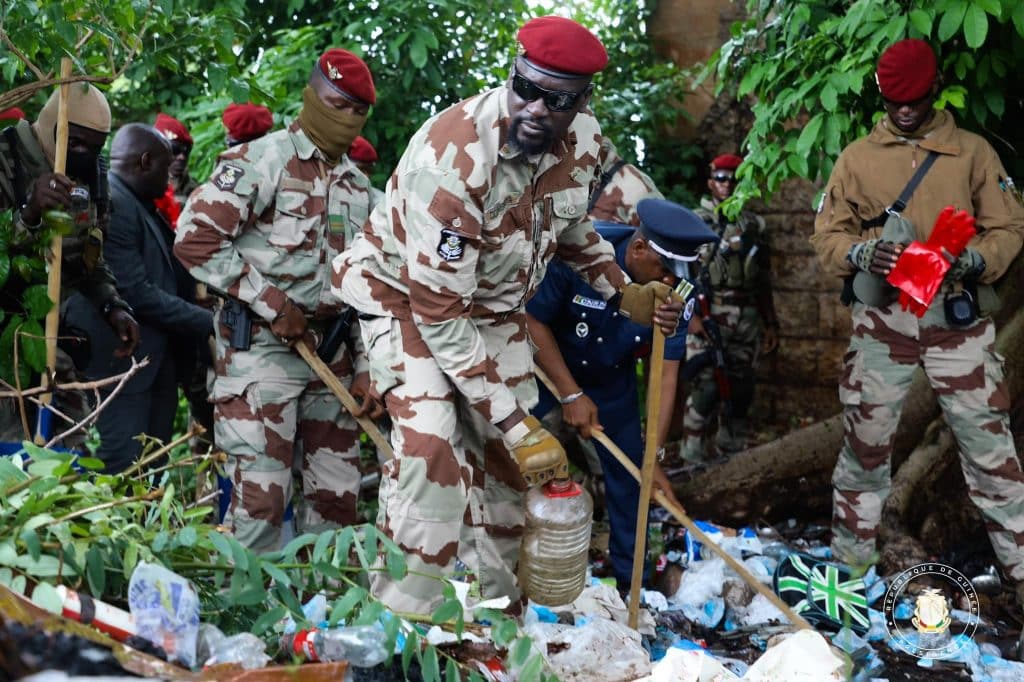In Guinea, security and geopolitical challenges should not be a brake on the well-being of the population. This is the logic of the head of the military junta in power, Colonel Mamadi Doumbouya, who recently improvised a citizens’ sanitation initiative in Conakry in which all members of his government took part. The operation is mainly aimed at collecting the waste that is piling up in the councils of Kaloum, Dixinn, Ratoma, Matoto and the island of Kassa, in the capital Conakry.
Thus, Yaya Sow, the Minister of Infrastructure and Transport, Ousmane Gaoual Diallo, the Minister of Urbanism and Housing, as well as Abé Sylla in charge of Energy, Hydraulics and Hydrocarbons, led a delegation for the collection of household waste in the municipality of Dixinn composed of 22 districts.
In the interministerial procession of this waste collection initiative in Conakry, were also the Ministries of Environment and Sustainable Development, Hygiene and Health, Agriculture and Fisheries, Mines and Geology. “This decision to interrupt the Council of Ministers allowed ministers and senior state officials to go and clean up the city to return to normal,” said transitional Prime Minister Mohamed Béavogui, who is also in charge of coordinating the implementation of the Conakry City Sanitation Project.
A project for 2.3 million inhabitants
In Guinea, the Conakry Sanitation Project is in full swing. According to the authorities of this West African country, it will allow the supply of 20,000 200-litre waste bins, the construction of 56 km of primary, secondary and tertiary reinforced concrete canals for the drainage of rainwater and wastewater and the rehabilitation of two drainage stations. It will also extend the capacity of the sludge treatment plants at the Yimbaya and Sonfonia sites.
Read also-EGYPT/GUINEA: Dow to collect and recycle 10,000 tonnes of plastics by 2025
As part of this project, in March 2021, the National Agency for Sanitation and Public Health (ANASP) received 56 trucks dedicated to the collection and transport of solid waste in the capital of Guinea. The new equipment was acquired thanks to $54 million in funding from the Islamic Development Bank (IsDB) through its Lives & Livelihoods Fund (LLF).
Benoit-Ivan Wansi
